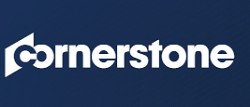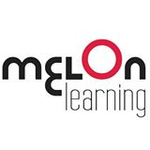Description

Cornerstone Learning

Workday Enterprise Learning
Comprehensive Overview: Cornerstone Learning vs Workday Enterprise Learning
Cornerstone Learning and Workday Enterprise Learning are both prominent players in the Learning Management System (LMS) and enterprise learning software markets. They cater to organizations looking to enhance employee training, development, and learning experiences.
a) Primary Functions and Target Markets
Cornerstone Learning:
-
Primary Functions:
- Provides comprehensive learning management solutions tailored for businesses of all sizes.
- Offers tools for creating, delivering, and managing corporate training programs.
- Features include course management, compliance training, certifications, employee development, social learning, and mobile access.
- Advanced analytics and reporting tools to track learner progress and training effectiveness.
-
Target Markets:
- Primarily targets mid-market to large enterprises across various industries.
- Popular among organizations with complex training requirements, such as healthcare, manufacturing, and finance.
- Used by organizations looking for integrated talent management solutions, as Cornerstone also provides modules for performance management, recruiting, and HR management.
Workday Enterprise Learning:
-
Primary Functions:
- Integrated as a part of Workday's human capital management (HCM) suite.
- Offers tools for creating and delivering educational content, leveraging the power of a unified system that combines learning with human resources and talent management.
- Enables personalized learning experiences, video learning capabilities, and social learning features.
- Provides insights and analytics directly tied to other HR and talent metrics.
-
Target Markets:
- Targets large corporations and enterprises, especially those already using Workday's suite of applications or considering an integrated HCM solution.
- Common in industries such as finance, healthcare, higher education, and technology.
- Appeals to organizations emphasizing seamless integration of learning with other HR functions.
b) Market Share and User Base
-
Cornerstone Learning:
- Historically, Cornerstone has been a leading player in the standalone LMS market.
- A considerable user base due to its longstanding presence and specialization in learning solutions.
- Widely adopted by organizations for its robust feature set and scalability.
-
Workday Enterprise Learning:
- While newer compared to Cornerstone in the LMS space, it benefits from Workday’s extensive enterprise presence.
- Rapidly growing user base due to the increasing number of companies adopting Workday’s broader HCM suite.
- More popular among organizations that prioritize integrated solutions over standalone systems.
c) Key Differentiating Factors
-
Integration:
- Workday Enterprise Learning is deeply integrated within Workday's HCM suite, offering a seamless experience between learning and other HR processes. Cornerstone Learning, while also offering integrated talent management solutions, is more specialized in learning.
-
Focus and Flexibility:
- Cornerstone Learning offers a more comprehensive range of learning-focused features and greater flexibility for organizations focused primarily on diverse and complex training needs.
- Workday provides an advantage in environments where integration with HR processes and data is a priority.
-
User Experience and Accessibility:
- Cornerstone excels in social and mobile learning experiences and offers a broader array of learning formats.
- Workday leverages its platform’s user experience strengths, especially for customers already familiar with Workday’s UI.
-
Technology and Analytics:
- Workday benefits from its cloud-native architecture, offering advanced machine learning and analytics capabilities tightly integrated with other business data.
- Cornerstone also offers robust analytics but may appeal more to organizations looking for specialized reports and insights related to standalone learning metrics.
In summary, while both platforms provide strong LMS functionalities, their appeal hinges largely on the organizational priorities: Cornerstone for those focusing heavily on specialized learning programs and Workday for those prioritizing integrated HR and learning solutions.
Contact Info

Year founded :
Not Available
Not Available
Not Available
United States
http://www.linkedin.com/company/cornerstonelearning

Year founded :
Not Available
Not Available
Not Available
Not Available
Not Available
Feature Similarity Breakdown: Cornerstone Learning, Workday Enterprise Learning
When comparing Cornerstone Learning and Workday Enterprise Learning, it's important to consider the specific needs and preferences of an organization, as both systems offer robust solutions to learning management but with some similarities and differences. Here's a breakdown based on the requested categories:
a) Core Features Common to Both:
- Learning Management: Both platforms offer comprehensive tools for managing training programs, scheduling, and delivering courses.
- Content Library: Both have access to extensive content libraries that support different types of learning materials such as video, audio, and documents.
- Compliance Training: Both systems provide tools for compliance management, allowing organizations to ensure employees meet industry and company standards.
- Reporting and Analytics: Both offer robust reporting and analytical capabilities to track progress and measure learning outcomes.
- Mobile Access: Both platforms support mobile learning, enabling users to access courses on various devices.
- Integrations: They integrate with other HR and enterprise systems to provide seamless data exchange and functionality.
- Social and Collaborative Learning: Both encourage peer-to-peer interaction and community-based learning through social features.
- Customization: Both allow for customization of learning paths, user roles, and permissions.
b) User Interface Comparison:
- Cornerstone Learning: Known for its flexible and comprehensive interface, it provides a user-centric experience with easy navigation and a modern look. The system is designed to cater to a variety of learning needs, making it visually appealing and intuitive for learners.
- Workday Enterprise Learning: Offers a clean, streamlined user interface that aligns with the broader Workday suite aesthetics. The UI is integrated within the Workday ecosystem, which means it has consistent usability for organizations already using Workday for other functions. It emphasizes ease of use and smooth integration within its existing HR and ERP applications.
c) Unique Features:
-
Cornerstone Learning:
- Content Anytime: Offers a unique feature known as "Content Anytime," which is a curated subscription service that delivers high-quality content on various topics from leading content providers.
- Skill Management: Advanced skill management capabilities that allow organizations to map out skill gaps and offer relevant learning pathways.
- Extended Enterprise: Allows organizations to provide training to external audiences like partners and customers, not just employees.
-
Workday Enterprise Learning:
- Embedded Learning: Seamlessly integrates learning into everyday workflows, allowing employees to learn while using other Workday applications.
- Personalized Recommendations: Uses machine learning to provide personalized content recommendations based on an employee's career development plans and interests.
- Unified Platform: If an organization is already using other Workday products, having a learning system on the same platform offers unparalleled integration and ease of use across HR and financial systems.
In summary, both Cornerstone Learning and Workday Enterprise Learning are powerful platforms with key features necessary for modern learning management. The choice between the two would largely depend on an organization’s specific needs, existing systems, and desired unique features.
Features

Course Management
Performance Tracking
User Experience

Interactive Learning Experience
Personalized Learning Paths
Social Learning
Performance Tracking and Analytics
Integrated Content Management
Best Fit Use Cases: Cornerstone Learning, Workday Enterprise Learning
When comparing Cornerstone Learning and Workday Enterprise Learning, it's important to consider the specific needs, size, and industry of the business to determine which platform might be the best fit. Both platforms offer robust features, but they cater to different scenarios and business requirements.
a) Cornerstone Learning
Best Fit Use Cases:
-
Large Enterprises with Complex Learning Needs: Cornerstone Learning is often chosen by large organizations with diverse and complex training requirements. It is capable of handling large-scale employee bases and provides extensive customization and integration options.
-
Industries with Compliance and Certification Needs: The platform is well-suited for industries like healthcare, finance, and manufacturing that have strict compliance and certification requirements. It offers features that make it easier to track and report on training for regulatory compliance.
-
Companies Prioritizing a Comprehensive Talent Management Suite: Businesses looking to integrate learning with other talent management functions (e.g., performance management, succession planning) often find Cornerstone's unified suite of solutions beneficial.
-
Organizations Emphasizing Employee Development and Career Pathing: Companies that focus on long-term employee development, skills assessments, and career pathing can leverage Cornerstone's extensive learning and development tools.
b) Workday Enterprise Learning
Preferred Scenarios:
-
Organizations Already Using Workday HCM: Companies that are already utilizing Workday for human capital management will benefit from the seamless integration of Workday Learning. It provides a cohesive and unified user experience within the Workday ecosystem.
-
Mid to Large-sized Businesses Seeking Integrated HR Solutions: Workday Enterprise Learning is ideal for businesses that prioritize an all-in-one solution for HR, payroll, talent, and learning, without needing to integrate disparate systems.
-
Industries with Dynamic Learning Content Needs: The platform is suitable for businesses needing agile and continuously updated content, such as tech firms or fast-paced industries where the learning content needs frequent updates.
-
Companies Focused on User Experience and Engagement: Workday provides an intuitive and engaging user interface, which can enhance learner engagement, making it favorable for organizations focusing on user experience.
d) Catering to Different Industry Verticals or Company Sizes
Cornerstone Learning:
-
Industry Verticals: It caters to highly regulated industries—such as healthcare, financial services, and manufacturing—where compliance training is crucial. It also serves well in educational sectors and public sectors.
-
Company Sizes: While Cornerstone can serve midsize businesses, its features are particularly robust for large enterprises with complex needs.
Workday Enterprise Learning:
-
Industry Verticals: Workday is versatile, serving industries like technology, retail, and higher education that benefit from its dynamic content delivery and engagement tools. It's especially potent in sectors where speedy adoption and integration are crucial.
-
Company Sizes: Workday is scalable but often finds its best fit in mid to large-sized organizations that can maximize the integration of its suite of HR functionalities.
Both Cornerstone Learning and Workday Enterprise Learning have unique strengths and are capable of catering to diverse business needs. The best choice depends on the existing tech ecosystem, industry requirements, company size, and specific learning and development goals of the organization.
Pricing

Pricing Not Available

Pricing Not Available
Metrics History
Metrics History
Comparing undefined across companies
Conclusion & Final Verdict: Cornerstone Learning vs Workday Enterprise Learning
When evaluating Cornerstone Learning and Workday Enterprise Learning, it is essential to consider various factors such as features, scalability, user experience, integration capabilities, and cost. Here's a comprehensive analysis to help render a final verdict:
a) Best Overall Value
Best Overall Value: Cornerstone Learning
Rationale:
- Comprehensive Feature Set: Cornerstone Learning tends to offer a more extensive suite of features tailored for a dedicated learning management system (LMS), which often includes robust reporting, compliance management, and a wide range of content delivery options.
- Scalability: It is well-suited for large enterprises that require scalable solutions, including diverse industries and complex organizational structures.
- Specialization: As a specialized LMS, Cornerstone is often better equipped to handle various learning and development scenarios compared to Workday, whose primary focus is HR and enterprise management.
b) Pros and Cons
Cornerstone Learning
-
Pros:
- Robust Features: Includes advanced LMS functionalities, such as social learning, mobile capabilities, and personalized learning paths.
- Extensive Integration Options: Compatibility with a wide range of third-party applications enhances connectivity and functionality.
- User Community and Support: Strong community support and an array of user resources provide valuable assistance.
-
Cons:
- Complexity: May be overwhelming for smaller businesses or those with less complex learning needs due to its extensive features.
- Cost: Can be more expensive, especially when considering all available additional features and customizations.
Workday Enterprise Learning
-
Pros:
- Seamless Integration with Workday HR: Offers excellent integration with Workday’s ecosystem, making it a good choice for organizations already using Workday for HR and financial management.
- Unified Experience: Provides a consistent user experience through a single interface for learning and other HR needs.
- Simplified Workflow: Easier to manage within the Workday framework if the organization is deeply invested in the Workday ecosystem.
-
Cons:
- Limited LMS Focus: As its primary focus is not solely on learning management, it may lack some advanced LMS-specific features found in dedicated platforms.
- Customization Constraints: Less customizable compared to specialized LMS solutions.
c) Recommendations
-
Assess Current Systems: Organizations should evaluate their current HR and IT ecosystem. If Workday is already heavily utilized, Workday Enterprise Learning may provide a more seamless integration, potentially reducing disruption and training time.
-
Define Learning Needs: Companies with advanced learning needs or complex compliance requirements might find Cornerstone more aligned with their objectives due to its broad range of dedicated LMS functionalities.
-
Budget Considerations: Evaluate cost-effectiveness not just in terms of immediate expenses but also long-term value. Cornerstone might require a higher upfront investment, but its comprehensive capabilities could offer more significant returns for large-scale implementations.
In conclusion, while both Cornerstone Learning and Workday Enterprise Learning have their merits, Cornerstone Learning provides the best overall value for organizations seeking a comprehensive and specialized LMS solution. However, for enterprises heavily invested in the Workday ecosystem with simpler learning management needs, Workday Enterprise Learning might be more appropriate. Users should thoroughly assess their specific requirements, current systems, user base, and budget constraints before making a final decision.
Add to compare
Add similar companies




